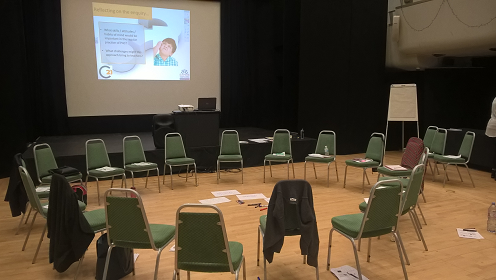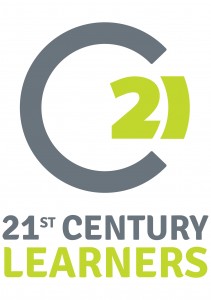On the value of Philosophy for Children and Communities (P4C)

Credit for image; https://www.maxpixel.net/photo-1746229
I have been practicing Philosophy for Children and Communities (P4C) since 2009, and have been training teachers and others to practice it since 2012. It was P4C that sparked my interest in dialogue and dialogic teaching and learning, and these interests in turn have led me into ventures such as becoming a Lead Facilitator with Generation Global, writing a book about Dialogic Education with Professor Rupert Wegerif and becoming an affiliate of Professor Neil Mercer’s group, Oracy Cambridge.
But none of these experiences have led me away from P4C – in fact they have strengthened my belief in its value. Here I will share just some of the reasons underpinning this belief.
IMHO, P4C provides the best possible basis for dialogic teaching and learning, and for oracy, across the curriculum
There is significant evidence to suggest that a more dialogic approach to teaching and learning leads to improved attainment (see this from Robin Alexander and this from Christine Howe et al at Cambridge). I’m still more persuaded that the approach supports students to develop a deeper understanding of central concepts and to construct meaning from the content they learn (I’m not persuaded that all measures of attainment are good proxies for the measurement of understanding and the construction of meaning).
I’ve written more about the nature and value of this approach in my series of posts ‘A Teacher’s Guide to Dialogic Pedagogy’. A key point made in these posts is that both effective teaching and effective learning through dialogue require deliberate practice and reflection; P4C provides a wonderful arena for such practice. In P4C teachers and students form communities of enquiry in which they learn to ‘think together’. Philosophical questions are raised and the teacher guides the students to break them down into manageable steps, to explore the meaning(s) of central concepts, to generate and evaluate different perspectives and arguments, and to make judgements regarding what seems reasonable to believe or to do in the light of the evidence currently available.
Students learn to think in ways that are caring (showing care for each other and for their enquiries), collaborative (supporting each other and constructing threads of dialogue and lines of enquiry), critical (testing ideas, establishing criteria, making judgements etc.) and creative (generating possibilities, making connections and attempting to see things form other perspectives). Teachers learn to facilitate the students’ thinking, giving them the opportunity to deepen their understanding and find new meaning – and to get better at dialogue and enquiry over time.
All this might begin in discrete Philosophy for Children sessions, but it doesn’t remain contained there. Rather, this way of learning together spreads through the curriculum with teachers and students becoming adept at switching between more transmissive approaches to teaching and learning and more reflective, dialogic approaches in which students are actively involved in constructing their own understanding. P4C becomes the ‘source’ of a stream of dialogic practice that flows into the curriculum and indeed beyond the school gates.
Philosophy for Children teaches us to care about values and ideas
‘I don’t care!’ is a statement all too easily deployed to defend oneself against the need for interest, thoughtfulness and action. But if we really don’t care about anything beyond our self-interest, what hope for society? In her article ‘The Other Dimension of Caring Thinking’, Ann Margaret Sharp argues that:
“…the classroom community of enquiry offers children the opportunity to discover values, things, ideas, ideals and people that they can care about.”
If the community of enquiry is a space in which children learn to care and discover things that are worth caring about – perhaps concepts like justice, goodness and beauty, and virtues such as reasonableness, open-mindedness and humility – and if this capacity to care leads them to take action in relation to such things, then this strikes me as another powerful argument for the presence of Philosophy for Children in the school curriculum.
Take the concept of fairness, for example. Even very young children can begin to appreciate the need for fairness. As the teacher guides them to discover the complexity of this seemingly simple idea, they begin to see the value of thinking it through carefully so that they can reach a richer understanding of what it might mean to act fairly in different contexts. And once opened, this enquiry into the nature of fairness need never close; throughout their lives (through their lived experiences) children will make richer meaning of the term, incorporating ideas about what it might mean to different people and different cultures. They come to see how this endeavour enriches their understanding of their world and, ultimately, their capacity to live a good life. As their awareness of things that are worth caring about expands along with their ability to see them from the perspectives of others, children develop a range of rich conceptual ‘lenses’ through which to examine their world. (See this post for more thoughts about the development of conceptual understanding over time).
And concepts that act as lenses in this way are to be found in all disciplines and in all school subjects. If teachers can help students to see the value of these ideas – to care for them and to see how they connect to form webs of ideas or ‘maps’ of the world, then they will have gone some way towards drawing their students into an appreciation and enjoyment of their subjects which might last for a lifetime. Here we are talking about relationships between children, teachers, and ideas, and perhaps the capacity to care is what makes these relationships possible. Sharp says that “If teachers don’t care about their students, not much educational growth can take place. Rather, a sense of emptiness and meaninglessness on the part of both children and teachers is almost a certainty”. Perhaps the same can be said if students ‘don’t care’ about their lessons, or their teachers. If, on the other hand, a teacher and her students pass through the gateway of care into the relation of dialogue, then education can become a wonderful, meaningful journey of growth. The regular practice of P4C teaches us the value of care, and gives us the opportunity to develop care as a personal, social and intellectual virtue. (See this post for more thoughts about the importance of caring thinking).

Philosophy for Children teaches us to care about each other
At the heart of dialogue lies the capacity to visit other perspectives – to understand and value the experiences, beliefs and opinions of others. It doesn’t necessarily follow that we agree with those alternative worldviews, but at least our awareness of the different ways of looking at things is expanded. As all of us become part of a more global, cosmopolitan society, the capacity to understand others, even those whose beliefs, values and practices seem alien to us, is vital if we are to avoid retreating into our isolated selves or our like-minded tribes and taking up arms against a seemingly hostile world. We don’t have to look very far to see the consequences of a failure to understand each other – to recognise the humanity in each other. (You can read more thoughts on the importance of teaching for dialogue in my post on the Oracy Cambridge blog.)
And it’s not just the big differences that matter. How much unhappiness is caused by our failure to see from the perspectives of those we interact with every day – of those we love? How much more difficult is the learning process made by our failure to be interested in the perspective of the teacher, or the discipline they are teaching, or our fellow students who have constructed different understandings?
Visiting other perspectives is not as easy as we might like to think. It begins with an attitude of openness – a willingness to turn to others with an open heart and an open mind. It requires genuine interest and curiosity – a real desire to seek to understand – and the associated skills of listening, questioning etc. These skills and attitudes – these virtues – can be learned through the regular practice of P4C.
I have heard my colleague, Nick Chandley, speak of children’s right to have time set aside for them to speak and think together about the things that are important to them. I think that’s a powerful idea. It challenges us to recognise that schools are not only concerned with the academic attainment of their students, but also with their well-being and with their sense of identity and belonging in their local, national and global communities. Schools play a role in inducting students into society, and equipping them to feel that they belong in a pluralistic world, not as helpless observers of it but as people who are connected to it – affected by it and affecting it.
In summary, I believe that Philosophy for Children can help us to become better teachers, better students and better people. It helps us to become attuned to who and what is worth caring about. It helps us to discern that which seems good. It gives us the opportunity to find our voice so that that goodness (to borrow a phrase from my mentor Rupert Wegerif) can flow back through us into a world that very much needs it.
You can find details of opportunities for P4C training in 2023 here.


